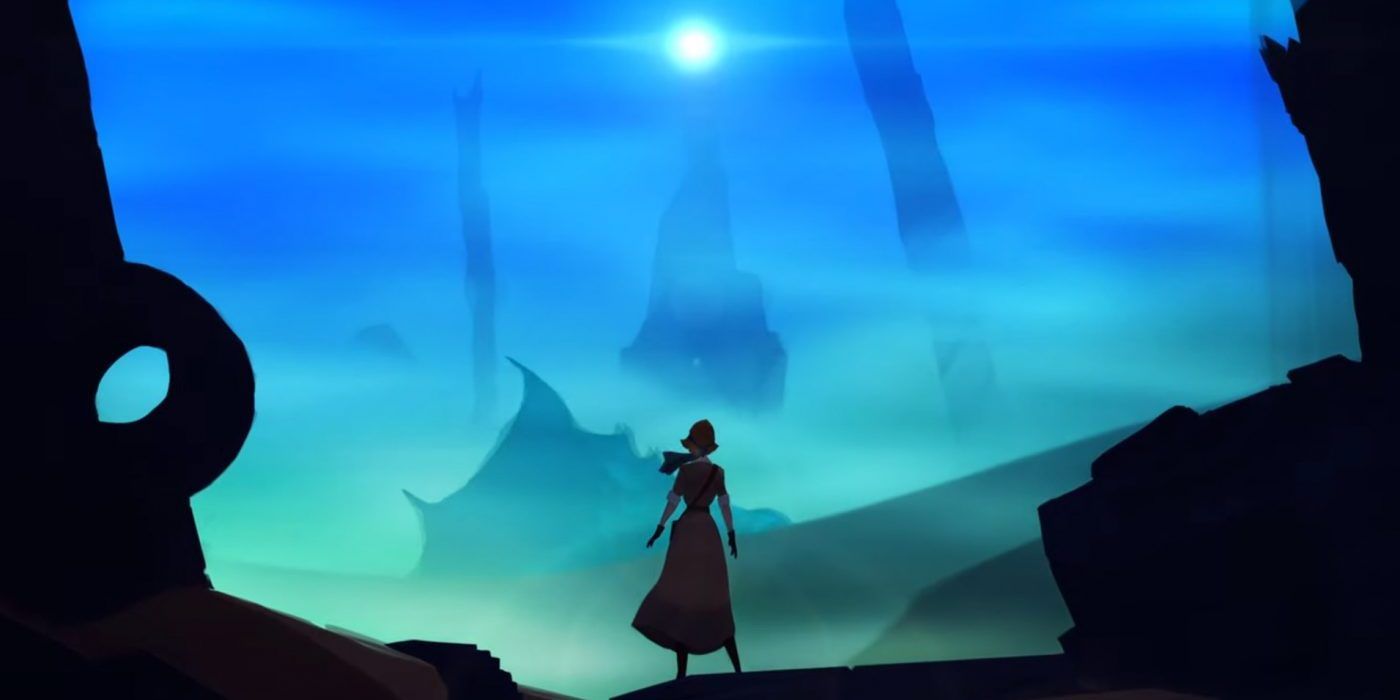During the "Inside Xbox" presentation back in May, a new game was announced titled Call of the Sea. The game is, according to its description, primarily puzzle focused, and is in a first-person perspective. However, it seems there may be more to get up close and personal to in Call of the Sea than its first trailer revealed.
Call of the Sea follows a young woman named Norah in the 1930s, searching for her husband's lost expedition. She follows the trail to a deserted island that she has already visited in her dreams, where she searches for her husband, or at least his remains. However, as she explores the island, strange things begin to happen. There are odd statues, evidence of once mighty architecture, and all the while, something calling to her, luring her deeper and deeper into the island.
If the themes above sound familiar, it is because many of them are taken from several stories by author H.P. Lovecraft. Lovecraft was famous for his tales of cosmic horror, which terrified with the idea of unknowable entities and horrors that drove people mad with their mere existence. Themes of ancient tribes and the maddening call of the ocean were prominent in some of his more famous works, like "The Call of Cthulhu," and "The Shadow Over Innsmouth," both of which Call of the Sea seems to take notes from. One of Call of the Sea's creators, Tatiana Delgado, has said that this is intentional, as the game takes heavy inspiration from Lovecraft's stories. Yet, looking at the gorgeous visuals presented by Call of the Sea's 4k, 60 FPS graphics, Lovecraft is not the first thing that readily comes to mind.
One famous example of a Lovecraftian game is Eternal Darkness, which may see a revival soon. The game oozes dark and twisted imagery, and has a madness mechanic that can mess with a player's head. This is because games with Lovecraftian games tend to focus on mind warping fear, but Call of the Sea looks to take a different approach. In the reveal trailer, Norah mentions that she feels more alive since coming to the island, and Delgado has stated that as the player loses their mind, they will enter "a dreamlike, colorful world." Rather than fear, Call of the Sea paints the dreamlike and unknown as something beautiful, a "rise to sanity" for Norah, rather than the oppressed, colorless life she led before.
These twists on the traditional Lovecraft formula may turn out to be a brilliant move on Out of the Blue's part when it comes to Call of the Sea. It can be notoriously difficult to make a good Lovecraftian game, mostly because its elements do not lend themselves well to traditional survival horror. Both Call of Cthulhu and The Sinking City can attest to how easy it is to fail at Lovecraftian horror, and without good writing, no game with Lovecraftian themes is destined for success.
Of course, making a good Lovecraftian game is nowhere near impossible. Darkest Dungeon and Sunless Seas with its Zubmariner DLC were some of the best indie titles of 2016, and other examples like Bloodborne do the Lovecraftian ideal more than justice. But the path of Lovecraftian horror has been trod many times, and innovation in Lovecraftian themes is sorely needed. Call of the Sea's choice to focus on Lovecraftian wonder instead might be just what the doctor ordered.
Call of the Sea is scheduled for release in 2020 for PC, Xbox One, and Xbox Series X.

